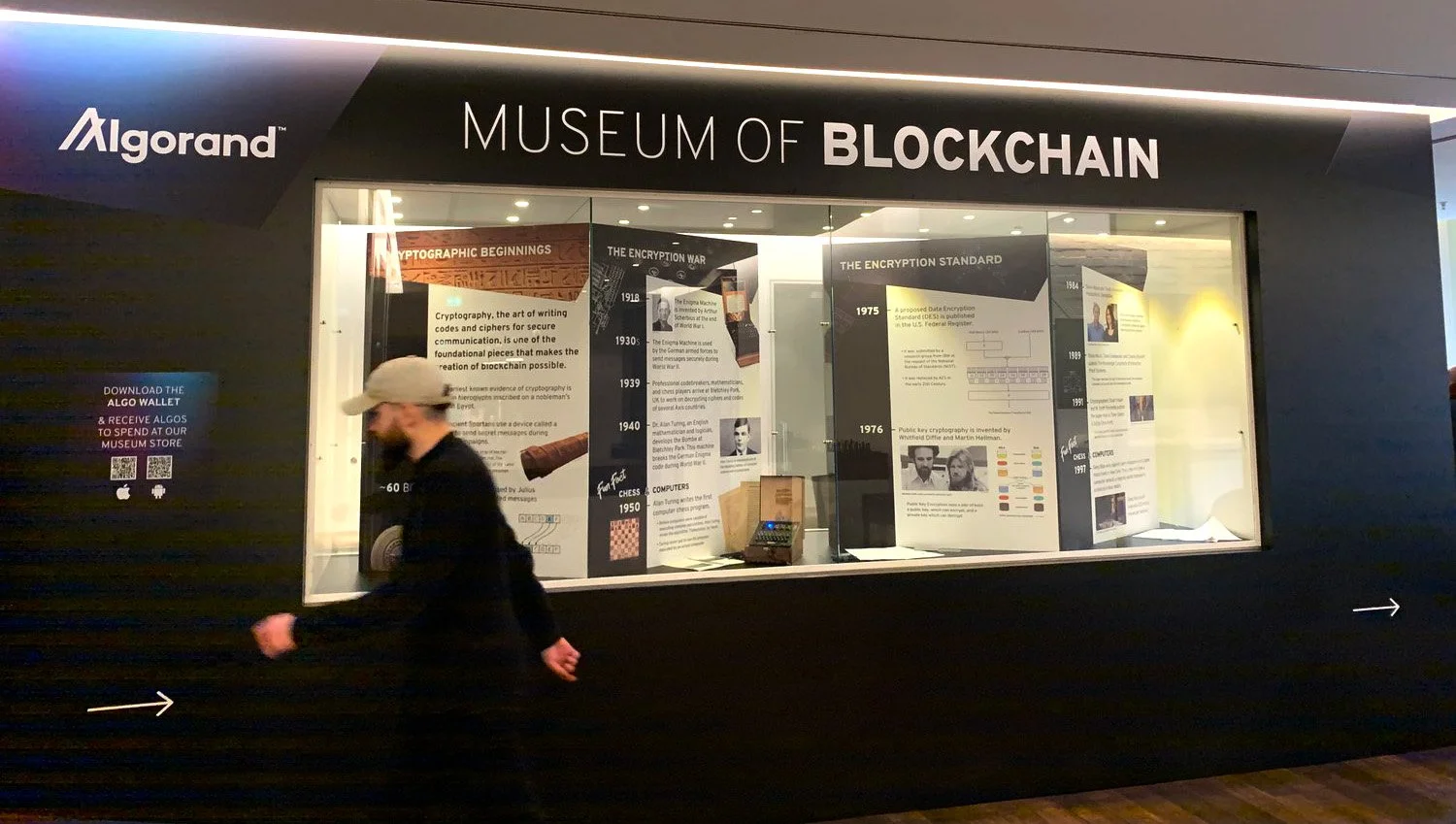The World’s First Museum of Blockchain History
FIDE WORLD CHESS GRAND PIX IN HAMBURG
We aimed to educate and provide an opportunity for chess players and visitors to explore the history of blockchain. For this purpose, we constructed a the world’s first museum of blockchain history at the FIDE World Chess Pix in Hamburg.
As the Art Director and hands-on designer, my responsibility was to create a museum within a short period and in a limited space. The objective was to highlight the history and timeline of blockchain technology and offer visitors a chance to explore its fascinating past. Exhibits dating back to 60 BC were on display, with highlights including Julius Caesar's encrypted cipher and the famous purchase of pizzas for 10,000 bitcoins, which is worth a staggering $93 million today. Our goal was to make it easy for passersby to see and read when walking by the museum booth. We also displayed physical objects such as an enigma machine, and a crypto key stack to provide an interactive and educational experience for visitors.
During the interactive exhibit, visitors were provided with a crypto wallet to purchase items and souvenirs at the museum store.
In addition to the physical museum, I created digital assets for the FIDE World Chess Grand Pix in Hamburg. These included banners, interstitials, and sponsorship boards in three languages (English, French, and Russian). I also oversaw the creation of video assets for the event and social media.
During the interactive exhibit, visitors were provided with a crypto wallet to purchase items and souvenirs at the museum store.
As part of the display, an Enigma Machine was showcased to correspond with the information about the invention from 1918.
A pizza box was included in the display to highlight famous purchase of pizzas for 10,000 bitcoins, which is worth a staggering $93 million today.
Digital assets including banners, interstitials, and sponsorship boards in three languages: English, French, and Russian.









